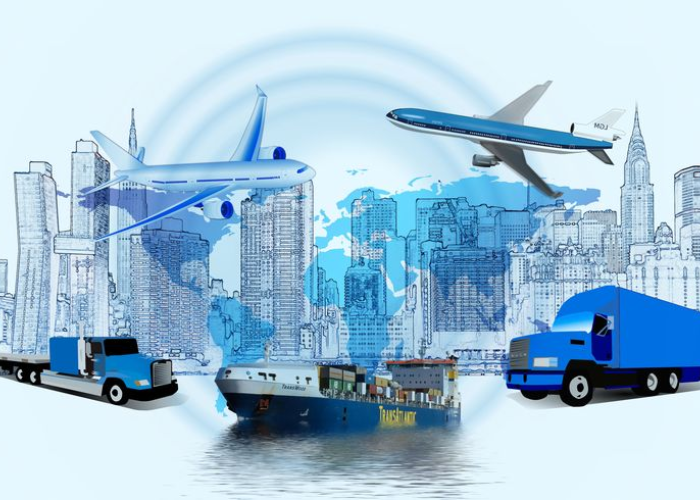The global and regional economy never stands still. Each year, businesses face the ebb and flow of changes that determine how they adapt and strategize. In 2024, the world of freight services stands at a crossroads of major economic alterations. Understanding these is vital for businesses aiming to navigate safely in these waters.
Economic Resurgence and Growing Trade Volumes
Post-pandemic Recovery: The aftermath of the COVID-19 pandemic has been a slow climb to economic recovery. Many countries are finally gaining momentum, leading to an increase in trade volumes. As the global demand for goods accelerates, there is a corresponding uptick in the demand for freight services.
Emergence of New Trade Routes
Changing Geopolitics: Trade routes are constantly evolving. Due to geopolitical shifts, certain regions are emerging as new trading hubs, altering the demand and routes for freight services. Central Asia, Africa, and South America are becoming focal points, leading freight services to recalibrate their logistics.
The Tech Advantage: Freight Forwarding Software
In response to these economic changes, the freight forwarding industry is rapidly adopting digital tools. The use of freight forwarding software has become crucial. Such software helps businesses streamline their operations, adjust to changing demands, and enhance customer service.
Companies are moving away from manual processes and are now leaning towards comprehensive freight forwarding systems. These systems offer real-time tracking, automated documentation, and predictive analytics, ensuring that businesses stay agile amidst changing economic conditions.
Sustainability and Green Shipping
Eco-friendly Solutions: The global push towards sustainability is affecting every industry, including freight services. Economic incentives, as well as stringent regulations, are pushing freight companies to adopt greener methods. This move is creating demand for eco-friendly ships, alternative fuels, and carbon offset services.
Rising Regional Players and Decentralization
Economically, the world is becoming less centered around traditional powerhouses like the US, China, and the EU. Regional players in Asia, such as Vietnam and India, are showing remarkable economic growth, influencing the demand and direction of freight services.
Decentralization is also evident in the technological realm. Freight forwarder software solutions are allowing smaller companies to compete with giants by offering superior service, visibility, and efficiency.
Shift to Ocean Freight and Relevant Software Tools
Due to environmental concerns and cost-effectiveness, there’s a shift towards ocean freight. This change has led to a surge in demand for specialized ocean freight software. Such software caters specifically to maritime shipping, ensuring optimal route planning, real-time cargo tracking, and efficient vessel management.
The Integration of AI and Ocean Freight
Another significant leap in the realm of ocean freight is the integration of artificial intelligence (AI) within the logistics framework. Advanced ocean freight software now employs AI-driven algorithms to predict shipping delays, assess weather patterns, and even optimize fuel consumption. This predictive analytics capability ensures that maritime shipments are not only efficient but also more reliable. Ship owners and managers can now preempt challenges, making real-time decisions that save time and money.
Enhanced Collaboration and Digital Platforms
As the world becomes increasingly interconnected, the need for seamless collaboration across borders is paramount. Modern freight forwarding system https://logitudeworld.com/focused on ocean freight have features that facilitate communication between shippers, consignees, and carriers. These digital platforms are transcending geographical barriers, ensuring that all stakeholders have a unified view of the shipping process. With shared documentation, synchronized timelines, and transparent transactions, these platforms are fostering trust and creating a cohesive shipping community.
Customized Solutions: The Rise of Freight Forwarding Platforms
No two businesses are the same, and their freight needs differ accordingly. Recognizing this, there has been a rise in tailored freight forwarding solutions. These platforms offer bespoke services, allowing businesses to select features relevant to them. From route optimization to inventory management, these platforms are revolutionizing how freight services are perceived and consumed.
Economic Protectionism and Its Challenges
Trade Barriers: Certain regions are resorting to protectionist measures to shield their economies. This approach involves higher tariffs and trade barriers, which can pose challenges for the freight industry. To tackle this, businesses are increasingly relying on a robust freight forwarding platform that can navigate such complexities.
E-commerce Boom and Last-mile Delivery
The meteoric rise of e-commerce has changed the face of the retail industry. This shift is impacting the demand for freight services, with an emphasis on faster and more efficient last-mile deliveries. The key to success here is the integration of smart technologies. Freight systems that can seamlessly integrate with e-commerce platforms and provide real-time updates will have the edge.
Flexibility and Resilience: More than Just Buzzwords
The economic changes highlighted above underscore the need for flexibility and resilience in the freight industry. The companies that will thrive are those that adopt modern tools, stay adaptable, and foresee changes.
In summary, the economic landscape of 2024 presents both challenges and opportunities for the freight service industry. To stay ahead, businesses need to be tech-savvy, environmentally conscious, and globally aware. With the help of cutting-edge solutions such as freight forwarding software and specialized platforms, the future seems promising for those ready to adapt and evolve.








Leave a Comment